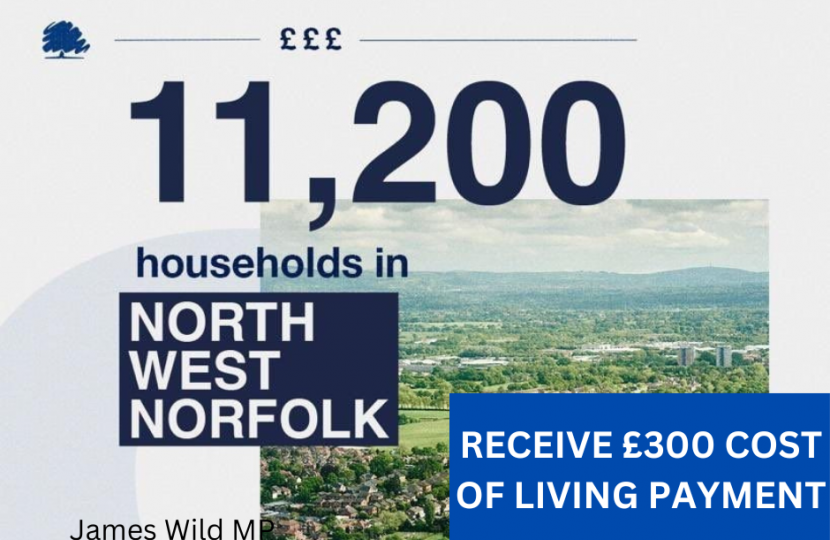
Continued support available for families with cost of living ahead of winter
Millions of people across the country are set to receive significant cost of living support ahead of winter, with the government freezing bus fares in England and the second instalment of the cost-of-living payment – worth £900 in total - landing directly in bank accounts from 31 October 2023.
- Significant cost of living support to come into effect as millions of households set to receive second £300 payment
- Comes as £2 bus fare cap in England extended with millions of people also set to benefit from lower travel costs
- Prime Minister continues to support families with the cost of living ahead of winter as we are on track to halve inflation
Millions of people across the country are set to receive significant cost of living support ahead of winter, with the government freezing bus fares in England and the second cost-of-living payment – worth £900 in total - landing directly in bank accounts from today.
The bus fare cap had been due to rise to £2.50 but the Government are keeping the fares down at £2 until the end of next year to help millions of people make significant savings on their travel costs. The fare cap has helped cut bus fares in England outside London by 7.4% between June 2022 and June 2023, with even bigger savings in rural areas where fares have dropped by almost 11%.
This extension is only possible due to the redirected HS2 funding as part of our Network North plan and takes the total government investment to keep bus fares down to nearly £600 million - with over 140 operators signing up to continue offering the cap across more than 5,000 routes.
Over 8 million households across the UK will also receive the second of up to three payments from today, totalling up to £900 through 2023/24 with a further cost of living payment due to be made to eligible households by Spring next year.
These payments are entirely tax-free, will not count towards the benefit cap, and will not have any impact on existing benefit awards. Those who are eligible will be paid automatically and do not need to apply for the payment or do anything to receive it.
Prime Minister Rishi Sunak said:
I know that winter can be a particularly challenging period for many families across the country. That’s why we have put in place a package of immediate support for vulnerable households over the coming months.
We are lowering travel costs through the bus fare cap, which we are able to do because of our long-term decision to cancel phase 2 of HS2. We are also providing an extra top up to help pay energy bills and direct payments to cover the cost of day-to-day essentials.
But the best way to put more money in the pockets of hardworking people is to focus on the long-term decisions that will help not only them, but future generations too. We’re on track to halve inflation which will help people’s wages go further, and we’re growing the economy to create better paid jobs and opportunities across the country.
We are also committed to helping vulnerable households across the UK with their energy bills over winter. Winter Fuel Payments – boosted again this year by an additional £300 per household Pensioner Cost of Living payment – will provide pensioners with up to £600 to help with heating costs over the colder months.
On top of this, nearly three million low-income households are also eligible for a £150 rebate on their winter electricity bills through the Warm Home Discount. From the 1st November Cold Weather Payments will also come into effect to provide eligible households £25 extra a week when the temperature is zero or below for more than seven days across the UK.
Taken together, these measures build on the significant cost of living support already provided to eligible households throughout last year – now worth an average of £3,300 per household over this year and last.
We have also gone further by:
- Increasing benefits in line with inflation, meaning more than 10 million working age families will see an average increase of around £600.
- Maintaining the Triple Lock earlier this year to give around 12 million pensioners the largest ever cash increase to the State Pension.
- Extending the Household Support Fund for another year in England to help families with essential costs with £1 billion of extra funding.
- Increasing the National Living Wage by its largest ever cash amount for 2 million workers – worth over £1,600 to the annual earnings of a full-time worker – and committing to increase it to over £11 an hour from April 2024.
- Cutting fuel duty by 5 pence and freezing the increase, worth £100 to the average driver this year.
- Covering up to 85% of childcare costs for working households on Universal Credit, up from 70% under the legacy system – currently worth over £19,500-a-year for families with two or more children.
The government has a strong record on supporting the most vulnerable and lifting households out of poverty, with the latest data showing there were nearly 1 million fewer workless households since 2010 and 1.7 million fewer people in absolute poverty after housing costs over the last decade.
We know the best route out of poverty is through work, which is why we’ve introduced a package of measures worth £3.5 billion to break down the barriers for people to find jobs and fulfil their potential. This includes our flagship Universal Support scheme which will get thousands more people into jobs with a personal adviser providing wraparound support for up to a year while they find their feet.
We encourage people in need of additional support over winter to check their eligibility through our Help for Households website for the various cost of living schemes that are place.

